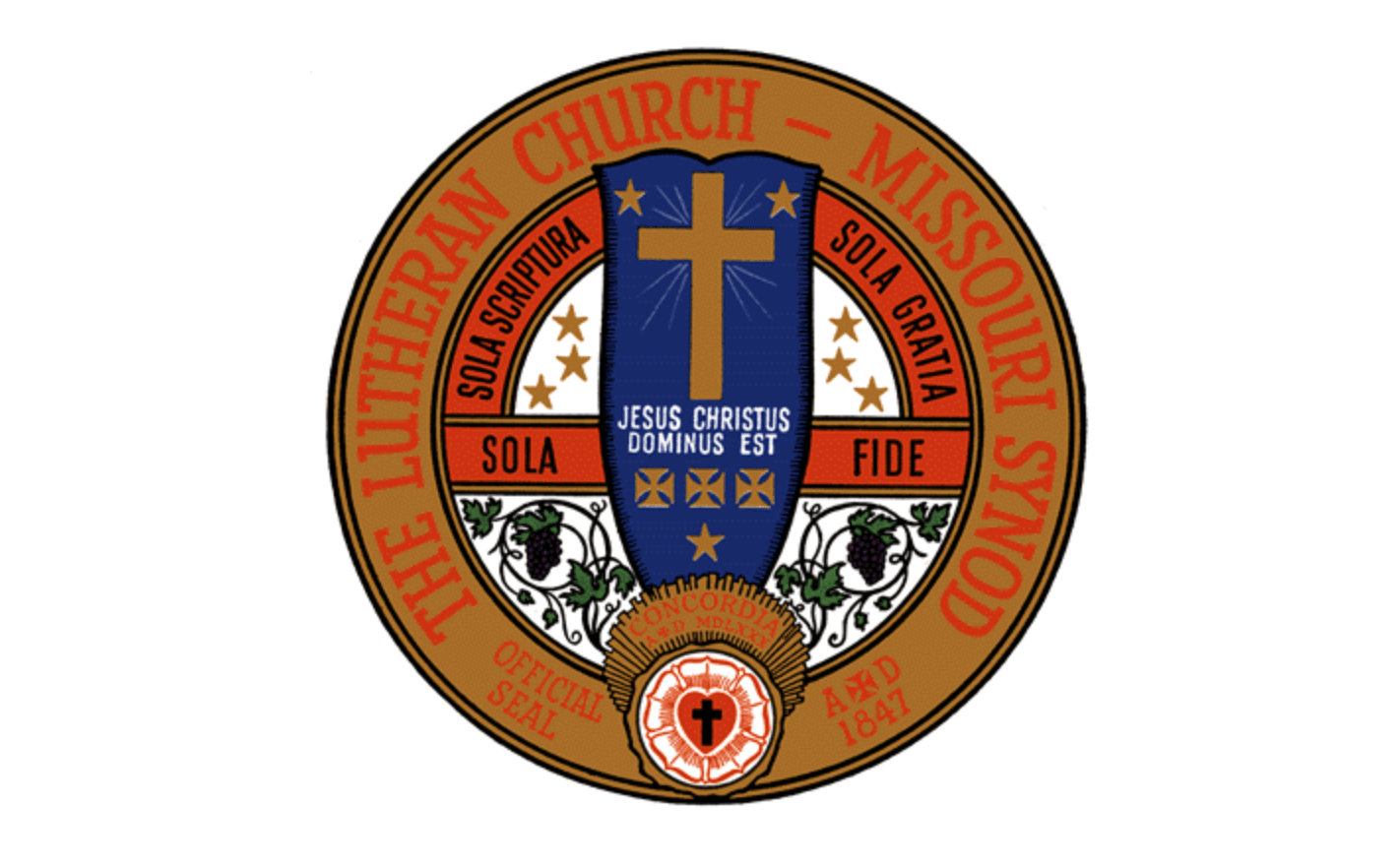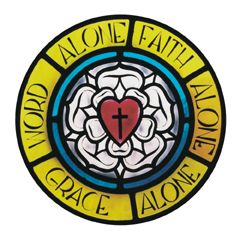
Lutheran theology begins with Jesus.
Luther, in the Smalcald Articles, identifies the first and chief article to be “that Jesus Christ, our God and Lord, died for our sins, and was raised again for our justification.” This means, Luther explains, that all are justified by grace (without their own merit). And since no work of a human can bring salvation, it is clear that faith alone justifies us. Luther establishes these points of doctrine by pointing to Scripture passages (Smalcald Articles, Second Part). This heart of Lutheran theology can by summarized in the formula that we are saved by grace alone, by faith alone, and by Scripture alone.
their own merit). And since no work of a human can bring salvation, it is clear that faith alone justifies us. Luther establishes these points of doctrine by pointing to Scripture passages (Smalcald Articles, Second Part). This heart of Lutheran theology can by summarized in the formula that we are saved by grace alone, by faith alone, and by Scripture alone.
Grace Alone
God’s grace is his undeserved love for sinners. This love flows out of God’s own character and is not based on any work that a person does to earn it. Paul writes that if God’s love is based on works of humans, then grace is no longer grace (Romans 11:6). Grace excludes all works of sinful humans from salvation; God in his love saves us, undeserving sinners, by sending his Son to die for us (John 3:16).
Faith Alone
Faith is God’s gift to us by which we look solely to Christ and trust that his work saves us from sin and death. Faith looks away from self to see Christ and Christ alone as our hope for salvation. Paul expresses this saving faith when he confesses his hope: “I know whom I have believed, and I am convinced that he is able to guard until that day what has been entrusted to me” (2 Timothy 1:12). And again: “The Lord will rescue me from every evil deed and bring me safely to his heavenly kingdom” (2 Timothy 4:18). Faith saves by receiving the salvation Christ won when he came by grace to die for us.
Scripture Alone
This saving faith in Christ comes from hearing God’s Word (Romans 10:17). Lutherans look to Scripture as the highest authority, revealing God’s grace to us, and proclaiming his promises of salvation in Christ. In fact, Christ and his saving work are the central proclamation of Scripture, as it promises salvation in Christ in manifold verses and ways. Those promises call forth faith, by which we are saved.
Christ Alone
Christ is central to each point: grace alone, faith alone, Scripture alone. Sometimes a fourth “alone” statement is added: Christ alone saves us. His work saves mankind from sin and death. Because it’s his work, it’s not based on our works, but comes to us by grace alone. Faith looks to Christ and trusts that he will keep his promises to save us by his death and resurrection. And we learn of Christ’s saving work and love in Scripture alone.
Christ and his saving work stand at the heart of the Gospel message proclaimed in The Lutheran Church—Missouri Synod. The Synod was formed to draw Christians together around the saving message and work of Christ. The saving message of Christ, his love, and his work is still proclaimed in the congregations of the LCMS today, reaching out with the good news that sinners are saved by grace alone, by faith alone, and by Scripture alone. This same message stands at the heart of the theology taught at CUWAA as a member of the LCMS.

—Aaron Moldenhauer, PhD, serves as Assistant Professor of Theology
—
If this story has inspired you, why not explore how you can help further Concordia's mission through giving.